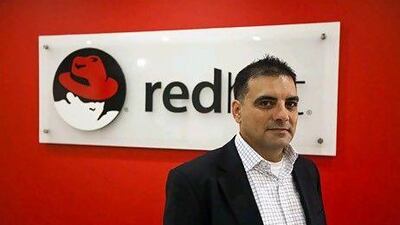Before Apple came along with its iCloud service this year, few consumers besides committed computer geeks thought cloud computing was cool.
But cloud computing, which lets people access files from anywhere and at any time as long as they are connected to the internet, is growing in popularity among businesses too. About 45 per cent of multinational companies say they have used cloud computing to store at least some of their business data this year, which is up from just 24 per cent last year, according to a recent survey of 110 organisations that was commissioned by Cable&Wireless Worldwide, a global technology company.
Some businesses may share information among employees through online services such as Google's Gmail, which can let staff see each other's daily appointments through a calendar feature. Yet the term cloud computing is actually a bit of a misnomer because there is not just one cloud, but many that are each run by a different company.
Certain clouds are public, store information for numerous businesses and are owned by well-known companies such as Amazon and IBM. Other clouds are private and serve only one organisation. Either way, small and medium-sized businesses have a lot to gain when it comes to using a cloud to share company data, experts say.
"It offers them the ability to act and behave in the same way that any of the extremely large manufacturers can act and behave," says George DeBono, the general manager for the Middle East and Africa region at Red Hat, a technology company.
Cloud computing also allows smaller business owners the opportunity to focus on what they are best at, while providing them with high-tech services that otherwise "would be too expensive or time-consuming to deploy", says Steve Bailey, the regional operations director at CommVault Systems, which provides businesses with different IT services.
But there are a number of considerations that business owners should be aware of before they plug into the cloud, experts warn.
Limitations
Storing information online could be limiting if another employee, customer or business partner is unable to connect to the same service. "If I want to change our web presence, or if I want to start offering my products in a market where my provider doesn't have reach, I'm constrained," warns Mr DeBono.
Security concerns
Security is another major consideration, and a legitimate concern, says Mr DeBono. "One of the gaming companies has just had a fairly significant breach," he says. "If a bank had a breach of that magnitude, would they continue down the path of cloud? I venture to say probably not." Of course, security concerns will vary depending on what kind of information a business wants to save online. One tip, experts say, is to ensure business owners make sure that any suppliers of cloud services follow a tight security standard, such as ISO certification. "Check when it was carried out and the authority that did it, too," says Mr Bailey.
Cost considerations
Business owners should also ask how they will be charged for a cloud-computing service, as different providers may charge by the minute, day or month, plus tack on extra charges if more than one person wants to access the same service or site.
Businesses that do not have anyone with the expertise on site should pay a professional to checkwho might be liable for any breach of online security according to the law. "Make sure you understand completely the terms of what you are buying and what the expected service levels are, and what happens if things really go wrong," says Mr Bailey.
New customers should also negotiate a yearly exit clause so they have a choice to find a different company to provide cloud-computing services. They should also find out what will happen to their data when they leave and get this confirmed in writing. "Can I get access to my data or do I need to build it all from scratch again?" says Mr DeBono.


